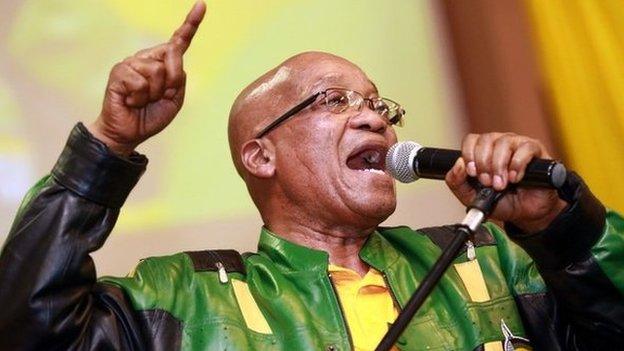Jacob Zuma: Deadline looms for South African police to arrest former president
- Published
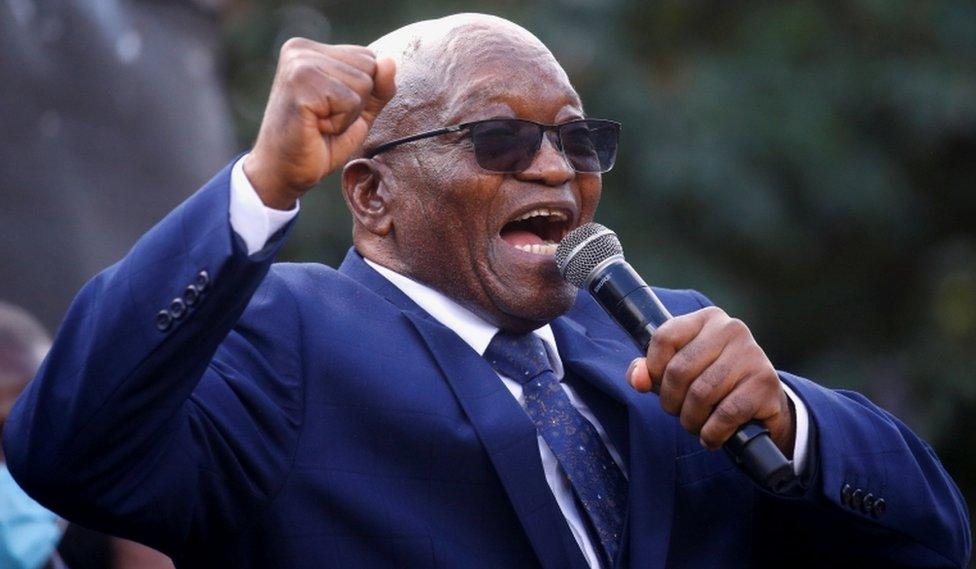
Jacob Zuma has been sentenced to 15 months in jail for contempt of court - but remains at liberty
An unprecedented legal drama is gripping South Africa, as former President Jacob Zuma urges the courts to block a midnight deadline for police to arrest him.
Mr Zuma, 79, was forced to resign in 2018 after nine years in power.
Last week South Africa's Constitutional Court sentenced him to a 15-month jail term for contempt of court, after he failed to attend a corruption inquiry.
It's unclear whether police will stand by the Wednesday deadline.
In theory, the veteran leader should be in the hands of prison authorities by midnight local time (22:00 GMT), having already refused to hand himself in on Sunday.
But on Tuesday his lawyers approached the High Court in Pietermaritzburg to halt the arrest, and the judgement isn't due until 11:30 local time on Friday.
Will police move against Zuma or not?
Before the hearing on Tuesday, lawyers for the police told the Constitutional Court they would pause the arrest order given the "unique situation presented by the developments and the legal matrix involved".
That could see them wait to detain Mr Zuma until his legal options have run out.
However, others are emphasising that the arrest warrant still stands.
Police Minister Bheki Cele told South African news website News24 he believed the police were being thrown under the bus by South Africa's courts, and that they had "muddied" a "very clear" judgement by allowing Mr Zuma's legal bids to continue. Appeals to Constitutional Court judgements are not normally allowed.
Asked if he himself could be in trouble if he failed to carry out the arrest warrant, the minister replied: "I'm not prepared to be charged for contempt of court."
His spokesman added on Wednesday: "If we don't hear anything from the Constitutional Court - which we haven't heard so far - we have until midnight tonight to execute the order."

Find out more about Jacob Zuma:

The politics of arresting a former president
By Nomsa Maseko, BBC News, Johannesburg
Police Minister Bheki Cele is understood to be making a last-minute attempt to plead with the former president to hand himself in and not resist arrest.
Mr Cele wrote to Acting Chief Justice Raymond Zondo asking for clarity on whether or not Mr Zuma should be arrested, pending the outcome of the Constitutional Court hearing on 12 July.
Many believe the police minister is playing politics and doesn't want to put handcuffs on his own comrade. Others believe this is a deliberate attempt to make sure that Mr Zuma doesn't get arrested by midnight on Wednesday.
Speculation is rife that widespread protests could erupt if he is imprisoned. However, justice must be seen to be done - even against powerful politicians.

Supporters vow to block arrest
Though Mr Zuma was forced out of office by his own party, the African National Congress (ANC), he retains a loyal body of supporters, especially in his home province of KwaZulu-Natal.
South Africa has never seen a former president jailed before, and they are determined the man once dubbed the "Teflon president" for his survival skills won't be the first.
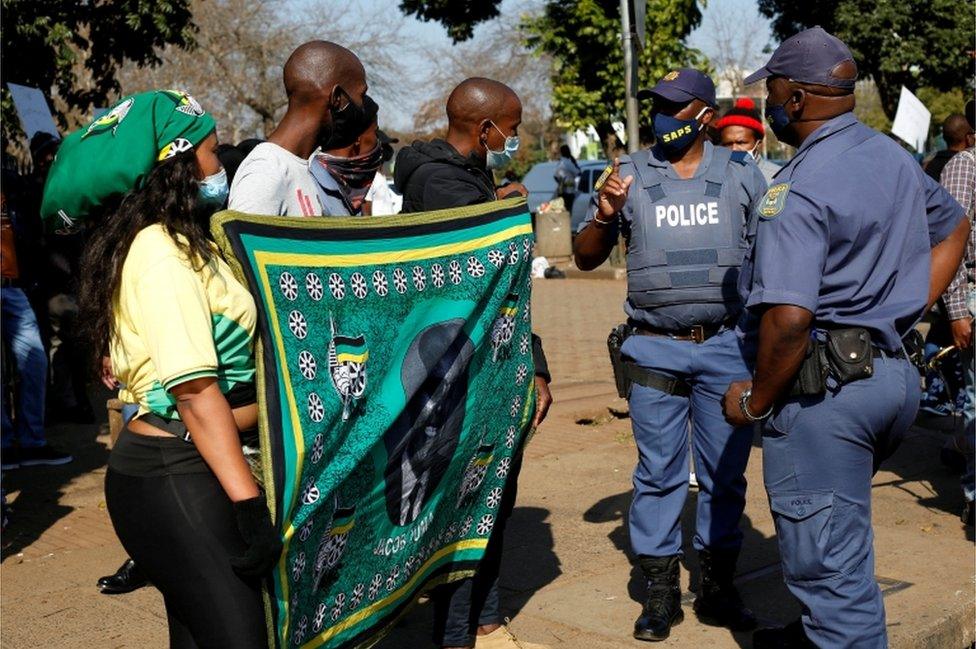
Police move on Zuma supporters protesting in front of the High Court in Pietermaritzburg
On Sunday, crowds formed what they called a human shield outside Mr Zuma's palatial home.
The BBC's Nomsa Maseko, who was at the scene, noted that the gathering was illegal under Covid-19 regulations aimed at curbing the spread of the disease.
The lack of police intervention led many to ask whether the former president was above the law.
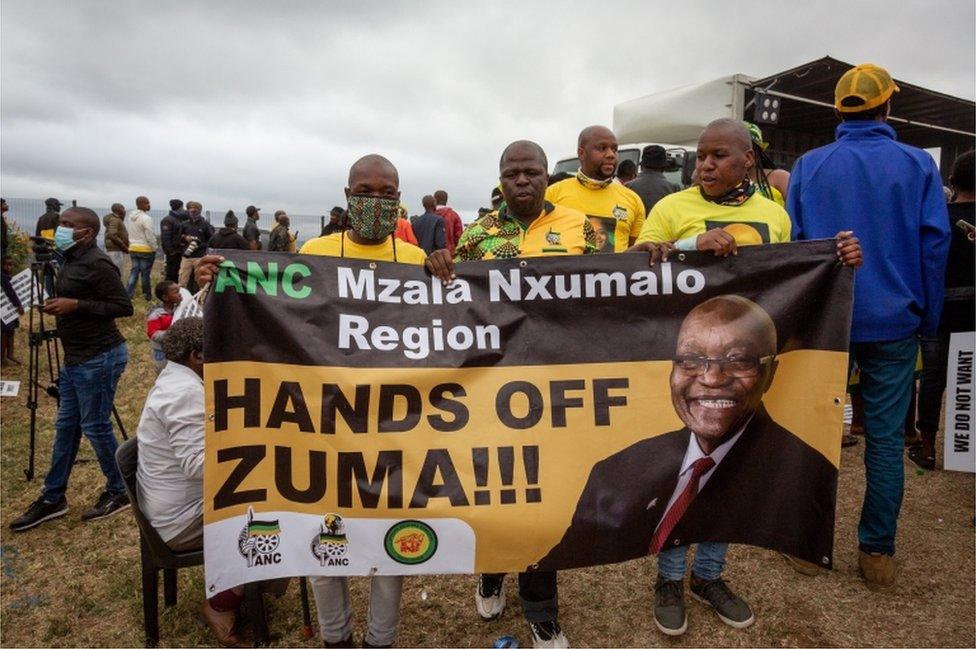
Supporters gathered to hear the former leader address supporters outside his home in Nkandla on 4 July
Mr Zuma, a veteran of the fight against white minority rule in South Africa who was imprisoned for 10 years on Robben Island alongside Nelson Mandela, has declared he is prepared to go to prison. However, he argued that "sending me to jail during the height of a pandemic, at my age, is the same as sentencing me to death".
Mr Zuma has repeatedly said that he is the victim of a political conspiracy. He has testified only once at the corruption inquiry into what has become known as "state capture" - siphoning off state assets - refusing to appear again.
In a separate legal matter, Mr Zuma pleaded not guilty last month in a corruption trial involving a $5bn (£3bn) arms deal from the 1990s.
Related topics
- Published4 July 2021
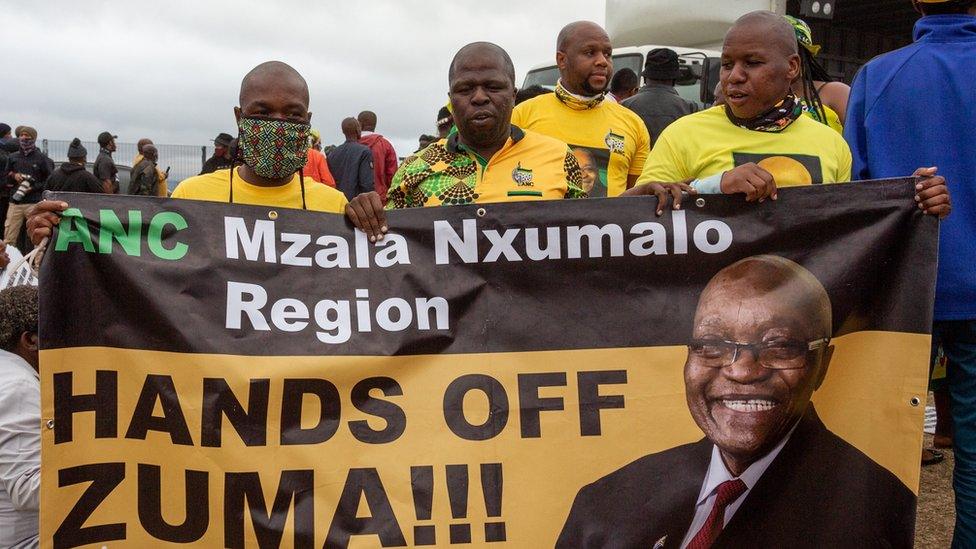
- Published29 June 2021
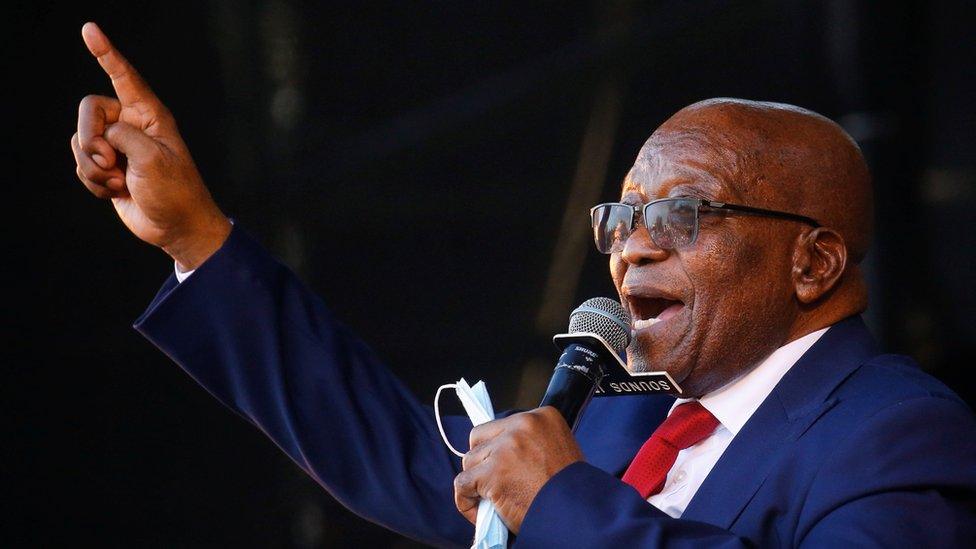
- Published6 April 2018
